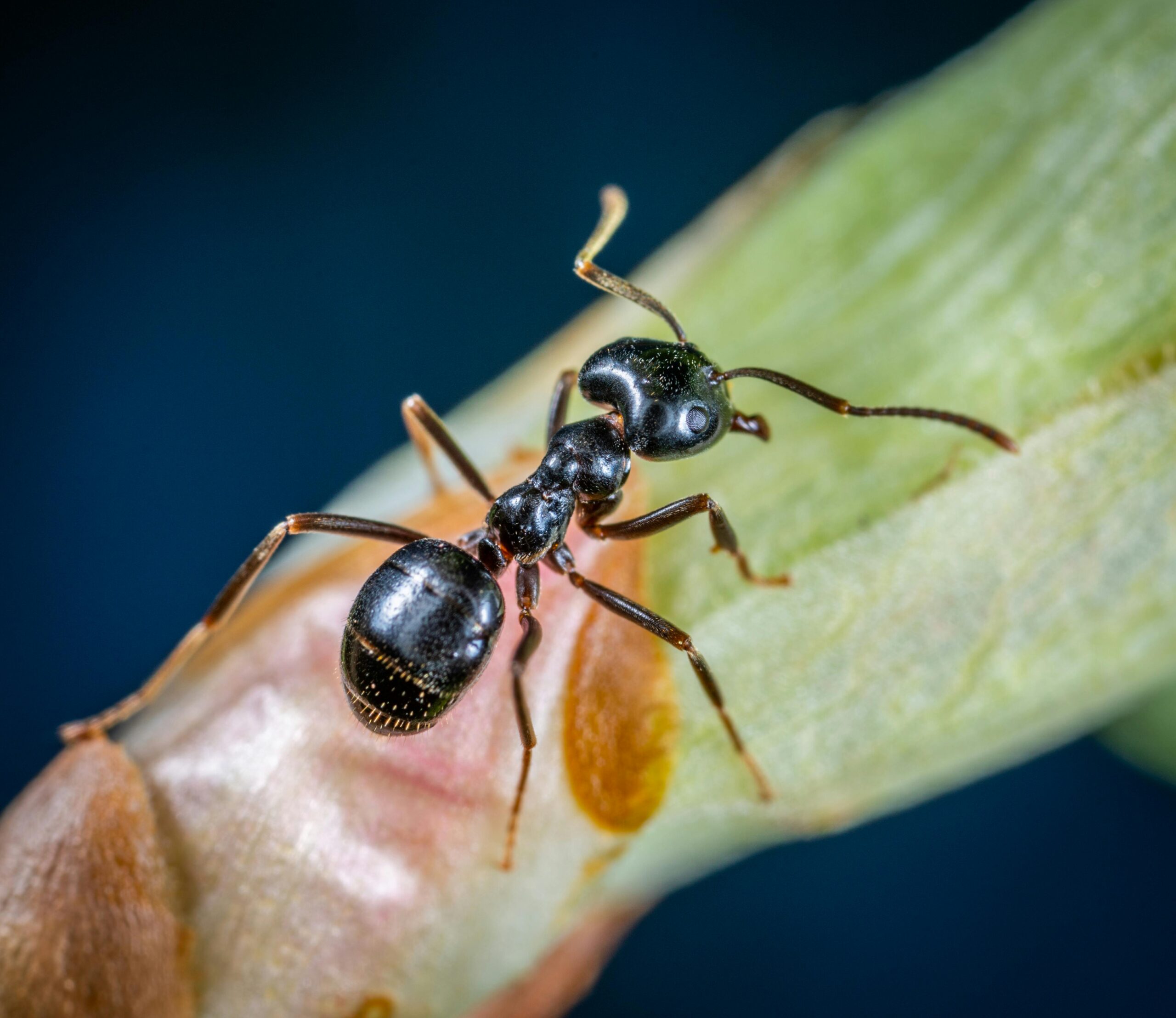Ants are industrious little creatures, but they quickly become unwelcome pests when they invade your home. Using harsh chemicals for ant control can harm your family and pets. Fortunately, several natural remedies can effectively drive ants away. Here, we’ll explore ten natural solutions to help you keep your home ant-free.
Vinegar and Water Solution
Vinegar is a natural ant repellent due to its strong smell, which disrupts the scent trails ants use to navigate. Mix equal parts white vinegar and water in a spray bottle and apply it to areas where ants are commonly seen. Focus on entry points, windowsills, and countertops. The acidity of vinegar also kills ants on contact. For extra effectiveness, repeat the application daily until the ants are completely gone. You can also use apple cider vinegar.
Lemon Juice
Lemon juice is another natural remedy that ants dislike. The acidic nature and strong scent confuse ants and mask their scent trails. Squeeze fresh lemon juice and apply it to entry points and areas frequented by ants. You can also leave lemon peels near doorways and windows to deter ants from entering. Additionally, adding a few drops of lemon essential oil to water and spraying it around problem areas can enhance the repellent effect.
Cinnamon
Cinnamon works as both a natural repellent and a barrier. Ants cannot tolerate the strong smell and texture of cinnamon. Sprinkle ground cinnamon around entry points, baseboards, and ant trails. Alternatively, you can use cinnamon essential oil. Dilute a few drops in water and spray it around problem areas. Another method is to place cinnamon sticks near windows and doors to create a longer-lasting barrier. This method is safe for children and pets.
Peppermint Oil
Peppermint oil is a powerful ant deterrent due to its strong aroma. Ants rely on their sense of smell to navigate, and peppermint oil disrupts this ability. Mix 10-15 drops of peppermint essential oil with water in a spray bottle and apply it to entry points, baseboards, and ant trails. You can also soak cotton balls in peppermint oil and place them in areas where ants are active. Refresh the cotton balls every few days to maintain their effectiveness. Besides being an effective ant repellent, peppermint oil leaves a pleasant and refreshing scent in your home.
Diatomaceous Earth
Diatomaceous earth (DE) is a natural powder made from fossilized aquatic organisms. It is harmless to humans and pets but lethal to ants. Sprinkle food-grade DE around entry points, baseboards, and areas where ants are active. The fine powder damages the ants’ exoskeletons, causing them to dehydrate and die. Ensure the DE remains dry, as it loses effectiveness when wet. For ongoing protection, reapply DE after vacuuming or cleaning the treated areas.
Baking Soda and Powdered Sugar
A mixture of baking soda and powdered sugar is an effective ant killer. The sugar attracts the ants, while the baking soda disrupts their digestive systems. Mix equal parts baking soda and powdered sugar and place them in shallow dishes or on ant trails. The ants will return the mixture to their colony, eventually eliminating it. Place the bait near entry points and areas where ants are most active; check and replenish the bait.
Coffee Grounds
Used coffee grounds are a natural ant repellent. Ants dislike the strong smell and texture of coffee grounds. Scatter used coffee grounds around entry points, garden beds, and ant trails. This method not only repels ants but also enriches the soil in your garden. Coffee grounds are also effective for indoor potted plants to deter ants from nesting in the soil. Refresh the coffee grounds every few days to maintain their effectiveness.
Borax and Sugar Bait
When mixed with sugar, it creates an effective bait that ants will carry back to their colony. Mix one part borax with three parts powdered sugar and place it in shallow dishes near ant trails. Ensure the bait is out of reach of pets and children. The ants will consume the bait and return it to their nest, eventually killing the colony. For enhanced safety, you can place the bait in covered containers with small holes that allow ants to enter but keep pets and children out.
Cucumber Peels
Cucumber peels are a simple yet effective way to repel ants. Ants have an aversion to the taste and smell of cucumbers, particularly bitter varieties. Place cucumber peels near entry points and areas where ants are active. Replace the peels every few days to maintain their effectiveness. This method is eco-friendly and utilizes kitchen waste, making it a sustainable choice for ant control. For similar results, you can also use other citrus peels, such as orange or lime.
Chalk
Drawing a chalk line around entry points and baseboards can prevent ants from crossing. The calcium carbonate in chalk disrupts their scent trails and deters them from entering. While this method is temporary, it is a quick and easy way to create a barrier that ants won’t cross. Consider using chalk regularly to redraw the lines as needed for longer-lasting results. This method is especially useful for keeping ants out of small areas like pantries or cupboards.
Conclusion
These natural pest control solutions can eliminate ants and prevent future infestations. Experiment with these methods to find the best ones for your home and enjoy a pest-free living space. Remember to be patient and consistent with your chosen methods, as natural solutions may take longer to show results compared to chemical alternatives. If the above natural solutions simply aren’t working for you, it may be time to call in pest control services.
Keep an eye for more news & updates on My Stories List!
This is a Sponsored Post
